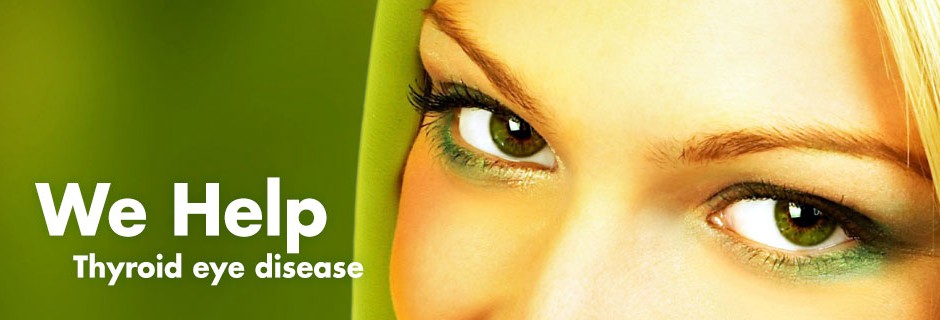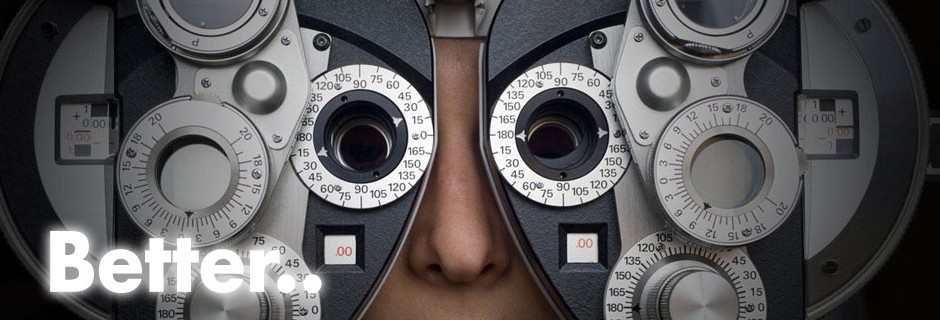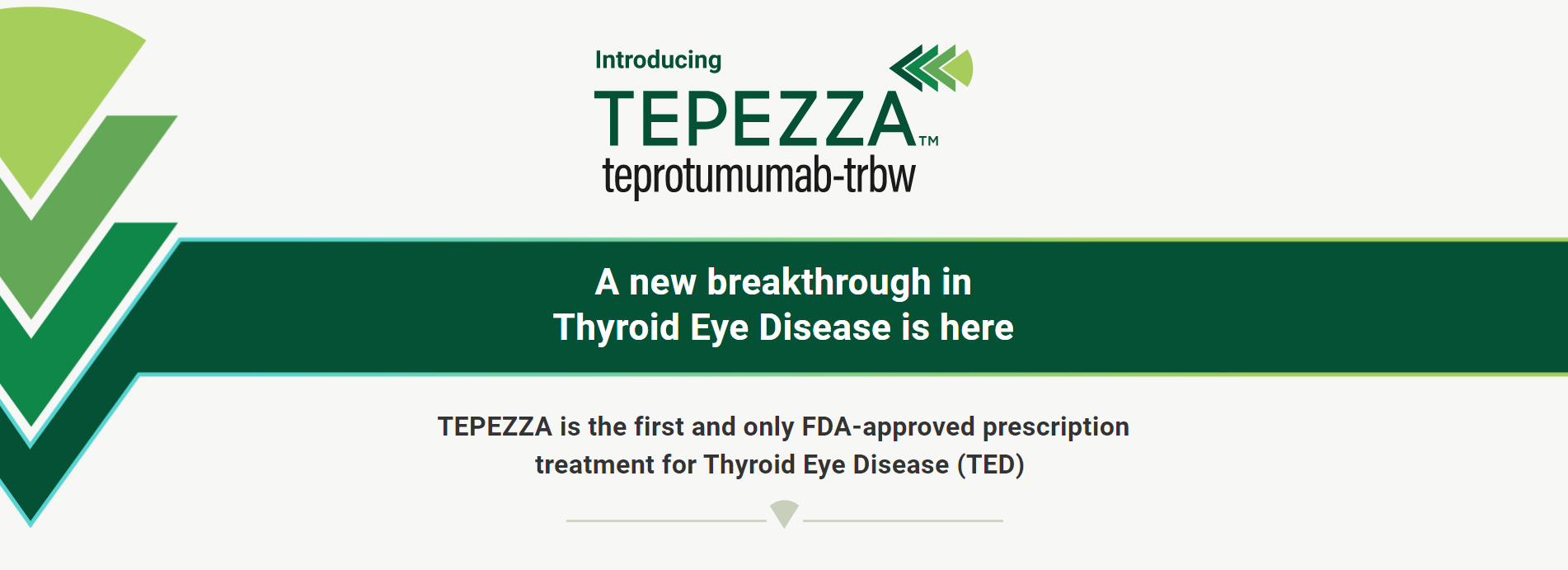Proptosis, Lagophthalmos, Dry Eye, Lid Retraction, Optic Nerve Damage
Thyroid eye disease is one of the great imitators, with a wide spectrum of symptoms that range from dry eyes to vision loss. Patients often have eyelid retraction (eyelids that are opened wider than normal) and lagophthalmos (inability to close eyes), both of which can result in uncomfortably dry eyes. The eyeballs themselves are often proptotic and protrude unnaturally due to orbital congestion. If the orbital congestion is too severe, patients can have diplopia (double vision) and also damage to the optic nerve can occur, resulting in vision loss and blindness.
Repair consists of strabismus surgery, orbital decompression surgery, and eyelid retraction surgery to help lower the eyelid to their natural positions.
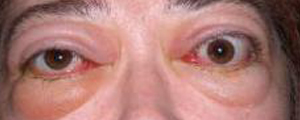
PREOP : Thyroid eye disease (lid retraction)
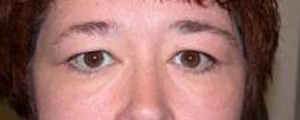
POSTOP : s/p orbital decompression and upper eyelid retraction repair
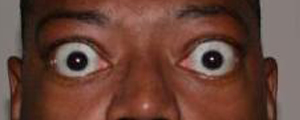
PREOP : Thyroid ophthalmolopathy
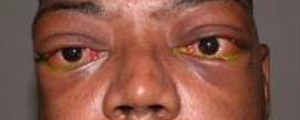
POSTOP : s/p orbital decompression and radiation therapy
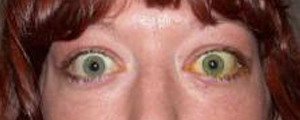
PREOP : Thyroid ophthalmolopathy (lid retraction, proptosis, exposure)
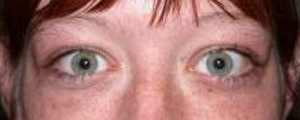
POSTOP : s/p orbital decompression and lid retraction repair
What is the most important information I should know about TEPEZZA?
- • High blood pressure
- • Fast heartbeat
- • Redness of the face/Feeling hot
- • Difficulty breathing
- • Headache
- • Muscle pain
If you have inflammatory bowel disease (IBD), such as Crohn’s disease or ulcerative colitis, TEPEZZA may make your IBD symptoms worse. Symptoms of worsening IBD may include: an increased number of loose stools with stomach pain or cramps, and blood in your stools. After each TEPEZZA infusion, tell your doctor right away if you have worsening IBD symptoms.
TEPEZZA may cause an increase in your blood sugar. Before starting treatment with TEPEZZA, tell your doctor if you are currently being treated for diabetes, know your blood sugar is high, or have been diagnosed with diabetes. It is important for you to take your treatments and follow an appropriate diet for glucose control as prescribed by your doctor.
Before receiving TEPEZZA?, tell your doctor if you:
- • Have inflammatory bowel disease (Crohn’s disease or ulcerative colitis).
- • Are currently being treated for diabetes, have been diagnosed with diabetes, or know your blood sugar is high.
- • Are pregnant or plan to become pregnant. TEPEZZA may harm your unborn baby. Tell your doctor if you become pregnant or suspect you are pregnant during treatment with TEPEZZA.
- • Women who are able to become pregnant should use an effective form of birth control (contraception) prior to starting treatment, during treatment and for at least 6 months after the final dose of TEPEZZA.
- • Are breastfeeding or plan to breastfeed. It is not known if TEPEZZA passes into your breast milk. Talk to your doctor about the best ways to feed your baby during treatment with TEPEZZA.
- • Tell your doctor about all the medicines you take, including prescription and over the counter medicines, vitamins, dietary and herbal supplements. Know the medicines you take. Keep a list of them to show your doctor and pharmacist when you get a new medicine.
What are the possible side effects of TEPEZZA?
The most common side effects of TEPEZZA include muscle cramps or spasms, nausea, hair loss, diarrhea, feeling tired, high blood sugar, hearing problems, taste changes, headache, and dry skin.
This is not a complete list of all possible side effects. Tell your doctor or treatment team if you have any side effect that bothers you or that does not go away.
Please visit TEPEZZA? for more information.
You are encouraged to report negative side effects of prescription drugs to the FDA. Visit www.fda.gov/safety/medwatch, or call the FDA at 1-800-FDA-1088.
TEPEZZA is a prescription medicine used to treat Thyroid Eye Disease.
